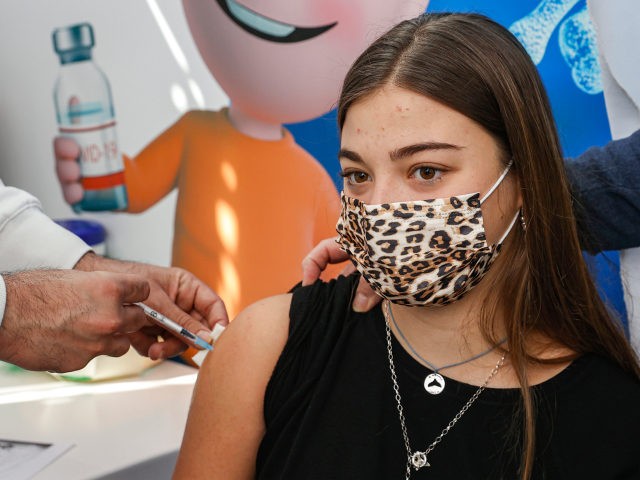U.S. health officials are studying data from Israel’s military personnel to understand the risk of heart muscle inflammation in younger people after receiving the Pfizer/BioNtech’s COVID-19 booster shot.
Myocarditis is a rare condition that has been linked to the two-dose mRNA vaccines made by Pfizer and Moderna, mostly in younger males.
“The real question that we have not yet answered is the safety data of an mRNA in young people vis-a-vis myocarditis,” President Joe Biden’s chief medical adviser Anthony Fauci told Reuters.
“The Israelis will relatively soon have that data because they’re vaccinating everybody in the country I think from 12 years old up, including their military recruits,” Fauci added.
U.S. regulators will examine the data to determine whether to grant broad approval for a booster shot.
The data could “help address the gap in safety information on mRNA vaccines, ‘which is one of the things that the advisory committee was interested in,’” Fauci added.
On Friday, Israel’s Health Ministry released data with the known side effects from the COVID-19 vaccines. According to the data, side effects were less present from the booster shot compared to the first two doses. Less than half a percent of Israelis reported significant side effects to their doctor following the first and second doses and even less than that from the third.
3.2 million have been Israelis vaccinated with a third Pfizer COVID-19 shot, out of a total population of 9.3 million.
Fauci told Israel’s Army Radio that eventually all Americans would be required to vaccinate with three shots of the Pfizer vaccine.
“I think ultimately there will be enough data to show that Israel is doing the right thing,” he said.
“I am very favorably disposed to what the Israelis have done and we get a lot of good information from them,” he said.
“I think they were waiting for more data from multiple cohorts, particularly in the arena of younger individuals,” he said.
“There is a great concern about the benefit-to-risk ratio of younger individuals in the context of myocarditis. We know it is a very rare event and we know that the Israelis are starting to gather a considerable amount of data that in fact will give us good insight into the risk, particularly in the vaccination of young people in your military,” he said.

COMMENTS
Please let us know if you're having issues with commenting.